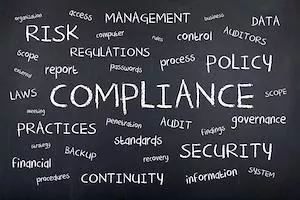On July 5, 2017, the House of Representatives approved a bill on corporate criminal liability. This bill, submitted to Congress by the Executive Branch in October, 2016, is now under review by the Senate. Some of the highlights of the bill are discussed in this article.

On July 5, 2017, the House of Representatives (“House”) approved a bill on corporate criminal liability (the “Approved Draft”). This bill is now under review by the Senate where it is likely that it will be amended and sent back to the House.
Several major amendments were made by the Representatives to the initial draft of the bill (the “Initial Draft”) that was presented to Congress by the Executive Branch in October, 2016.[1]
Some of the amendments and highlights of the Approved Draft are described below, showing the kind of variables that may be seen in this type of legislation, which topics are of special interest to Argentine legislators, and the impact that these decisions may have on the daily operations of legal entities when the bill is approved by both Houses of Congress and enacted into law.
The Initial Draft imposed criminal liability on legal entities for crimes against public administration as well as for international bribery. The House expanded such scope to include all crimes provided for in the criminal code in the Approved Draft. This amendment has material impact not only on the enforcement of this regulation but also in the development and implementation of compliance programs; since, according to the bill, companies may obtain a reduction in penalties depending on the robustness of their compliance programs.
Another highlight of the Approved Draft is that it makes certain crimes related to bribery, influence peddling, misuse or embezzlement of public assets, negotiations incompatible with public office, and fraud against the public administration imprescriptible.
The Approved Draft also makes legal entities liable even if the person acting on behalf of the legal entity was not entitled to such representation, provided that the action benefited the legal entity and the entity expressly or tacitly ratified the actions of the alleged representative. Additionally, the Approved Draft imposes successor liability on the legal entity resulting from a conversion, merger, absorption, spin-off or any other corporate modification, although conducting appropriate due diligence would not exempt the successor from liability as it would under the Initial Draft.
In regard to sanctions, the Approved Draft makes fines and publishing the judicial sentence in newspapers mandatory. Fines range from 1% to 20% of the gross income of the legal entity in the fiscal year prior to committing the crime. However, fines can be lowered to 0.5% in the event of mitigating circumstances (e.g. timely cooperation with the authorities, timely implementation of a compliance program) and to 0.1% when the legal entity enters into a collaboration agreement with the authorities.
Also in connection with sanctions, the Approved Draft adds that: (i) when the benefit arising from the crime is quantifiable, the fine must not be lower than 3 times the benefit; (ii) compliance programs (referred to as “integrity programs” by the bill) could be used to reduce penalties unless the judge determines that the program failed in the specific case due to lack of application, follow-up or supervision, and (iii) an Argentine Registry of Penalized Legal Entities must be created to disclose any penalties imposed under the law for up to 10 years.
Lastly, the Approved Draft has excluded the following key sections from the Initial Draft: (i) the requisite that, for the legal entity to be liable, the crime should have been a consequence of the entity having had inadequate controls and supervision (i.e. compliance program), (ii) a section expressly making legal entities responsible for acts of third-party contractors, and (iii) a section providing that cooperation agreements would not imply that the legal entity acknowledged responsibility.
New changes are expected in the Approved Draft and closely following them will allow companies to be better prepared if the bill becomes law. In any case, it is clear that strong compliance programs will not only help to prevent the occurrence of the acts covered by the bill but could also be used as a mitigation defense to obtain lower penalties.
[1] The Initial Draft was reviewed in our article available at http://www.marval.com/publicacion/proyecto-de-ley-de-responsabilidad-penal-corporativa-en-casos-de-corrupcion-y-pautas-para-programas-de-compliance-12870.
This insight is a brief comment on legal news in Argentina; it does not purport to be an exhaustive analysis or to provide legal advice.